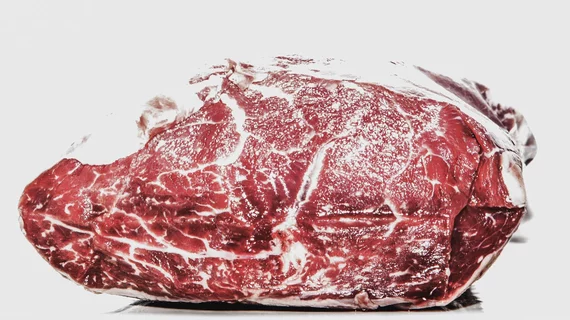Deep learning discerns meat safety quickly, economically
AI has “great potential” for beefing up food safety easily and affordably, according to researchers who used deep learning to assess the freshness of raw meat in a new study.
Apart from software, the technique needs nothing more than a halogen lamp and a commercial-grade spectrometer. This pairing can be had together for well under $5,000.
The research was conducted at the Gwangju Institute of Science and Technology in South Korea and is posted online in Food Safety.
The authors describe their work using a convolutional neural network (CNN) to classify beef freshness based on light-diffusion data they acquired with a spectroscope.
The system showed its chops by classifying—with 92% accuracy—78 beef samples decaying over two and a half weeks as “fresh,” “normal” or “spoiled.”
“Unlike other spectroscopy-based methods, our method includes myoglobin information; thus, it was robust to environmental factors such as sample temperature and humidity, which is a great advantage for industrial applications,” the authors comment in their discussion. “From this study, we demonstrate that a simple … spectroscopy system can provide high accuracy in the classification of beef freshness by employing a deep learning algorithm, which confirms the great potential for artificial intelligence in food safety applications.”
In a news release, the Gwangju Institute says the researchers believe “it may be possible to develop small, portable spectroscopic devices so that everyone can easily assess the freshness of their beef, even at home. Moreover, similar spectroscopy and CNN-based techniques could also be extended to other products, such as fish or pork.”
The study is available in full for free.

